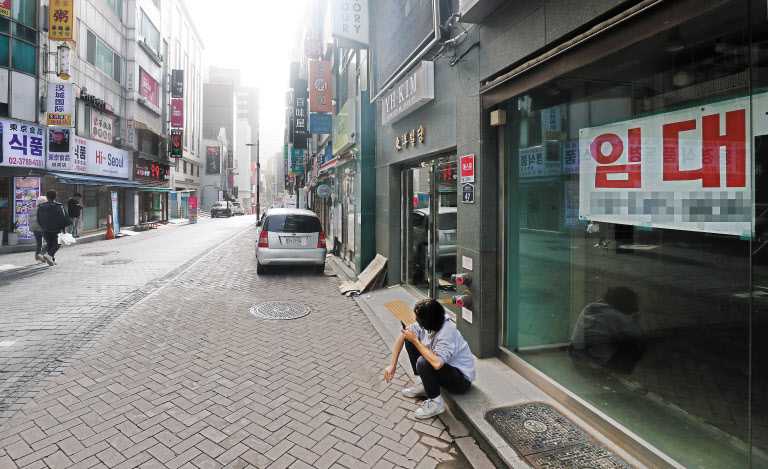Myeong-dong Shopping District Becomes Ghost Town
10 May, 2021

Seoul's downtown shopping district of Myeong-dong is on a sharp decline. Gone will be the days when the glitzy storefronts and bustling stalls in the prime shopping area attracted persons of all ages.
Store owners who've been conducting business there for 30 to 40 years say the coronavirus pandemic is not the only reason that the area is turning into a ghost town.
Just 2 yrs ago, Myeong-dong was dotted with posters and signs welcoming Chinese tourists, while hawkers learned Chinese and Japanese to attract customers. However now two out of three stores are empty and "for rent" signs have replaced the banners welcoming tourists.
Last Friday, 149 out of 249 stores along a 1.2-km strip were plainly empty, which results in a vacancy rate of around 60 percent and is a whole lot worse compared to the 38 percent in the first quarter of this year estimated by the Korea Real Estate Board.
One 53-year-old worker who was busy removing merchandise from a shuttered store said, "Stores that closed temporarily while their leases were still running are moving out now they're expiring. I never imaged that such a bustling shopping district would conclude like this."
Myeong-dong was hit harder than other areas when tourism ground to a halt since it had focused solely on the tourist market. Kim Seok-soo (62), who has run a restaurant for 29 years, said, "Even until the early 2000s, there have been various stores in Myeong-dong, nevertheless they all converted into cosmetics shops catering mainly to foreign tourists. Each of the marketing efforts were targeted at tourists, while local customers were ignored, so they stayed away."
Hwang Dong-ha, head of the merchants' association in Myeong-dong, said, "Some 82 percent of tourists made a beeline for Myeong-dong, so store owners went all out to fully capture them. Local shoppers might buy a couple of cosmetic products, but foreigners would spend W1-2 million worth per visit, which prompted store owners to give attention to them" (US$1=W1,117).
One estate agent in the region said, "Local customers started associating Myeong-dong with Chinese tourists. Even though the pandemic ends, Korean customers won't keep coming back."
Kim Young-keun, who has run an optician's since 1994, said, "Previously, Myeong-dong was the heart of Seoul, but that aura to be home to long-established shops, restaurants, tailors and jewelers no more exists."
The high rents became another problem, soaring to W1 billion per 3.3 sq.m. Hwang at the merchants' association said, "Building owners have slashed the rent by up to 70 percent, but you may still find no takers. The appraised value of the property has doubled, while landlords are practically begging tenants to remain. But whether or not rent has declined sharply, who within their right mind would consider investing their money to open a shop here now?"
Cosmetics will will have some appeal for Chinese tourists if they return, however the district has been hollowed out. Can Myeong-dong recover some of its former glory by heading back to basics? Kim, the optician, said, "Store owners in Myeong-dong need to do some hard thinking to check out ways to bring local customers back."
Source:
TAG(s):
